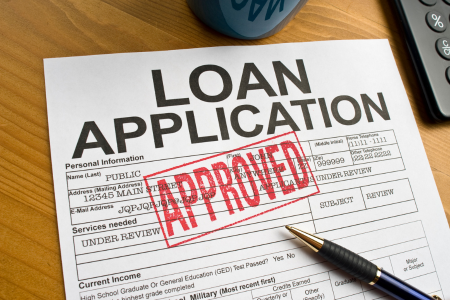Introduction
As an entrepreneur or small business owner, you might assume that your business debt is entirely separate from your personal finances. However, lenders often take a closer look at your business obligations—especially if you’re personally guaranteeing those debts—when you apply for a home loan. Understanding how this process works can help you present a stronger mortgage application and avoid surprises during underwriting.
What Is a Personal Guarantee?
A personal guarantee is a legal promise that you, as an individual, will repay a loan if your business cannot. While many entrepreneurs assume their business structure shields them from responsibility, personal guarantees essentially transfer the debt risk back to your personal assets if the business defaults.
- Why It Matters: Mortgage underwriters see a personal guarantee as a potential liability. If the business can’t cover the debt, you could be held personally responsible, which may influence your debt-to-income ratio (DTI) and overall loan approval.
Unraveling Business vs. Personal Debt
Even if your business loan doesn’t appear on your personal credit report, it doesn’t guarantee that underwriters will ignore it. They will typically delve deeper into your financial statements if they suspect there could be a personal guarantee tied to the business debt.
- Credit Report Nuances: Some lenders only report business loans to commercial credit agencies, meaning these debts might not show up on your personal report. However, underwriters don’t stop there. They look for any signs of personal liability.
- Contract & Documentation: If there is a question about whether a business debt is personally guaranteed, the underwriter may request the actual loan contract or specific documentation proving that you are not personally liable.
How Business Debt Affects Underwriting
- Debt-to-Income Ratio (DTI)
- If the underwriter determines you’re personally guaranteeing business debt, that amount might be calculated into your DTI. A higher DTI can make it harder to qualify for a traditional home loan or could affect the loan amount you’re eligible to receive.
- Cash Flow & Reserves
- Underwriters will also evaluate your personal and business bank statements for signs that business debt obligations could impact your cash flow. If you’re regularly funneling personal funds into the business, it might trigger concerns about your ability to handle a mortgage payment.
- Overall Risk Profile
- A personal guarantee can increase the perceived risk. Even if your business is thriving, lenders will consider the possibility of default. They want to be sure you can manage additional debt—like a mortgage—without jeopardizing either your personal or business finances.
Proving Business Debt Isn’t Personally Guaranteed
If you’re confident a business debt is not personally guaranteed, it’s crucial to provide thorough documentation. This typically includes:
- Business Loan Agreement: The most critical piece of evidence. Make sure it explicitly states that the loan is only backed by business collateral or credit—not by you personally.
- Articles of Organization or Incorporation: Having a formalized business structure (e.g., LLC, S Corp, C Corp) can sometimes help differentiate business liabilities from personal ones, although a personal guarantee can still exist.
- Letters or Statements from Lenders: In some cases, your business lender can provide a written statement confirming the loan does not require your personal guarantee.
Tips for Mortgage-Ready Entrepreneurs
- Keep Personal & Business Finances Separate
- Use dedicated business accounts, maintain clear bookkeeping, and avoid co-mingling funds. This helps lenders see a clear boundary between personal and business debts.
- Negotiate Lending Terms Carefully
- If you’re taking out a new business loan, try to avoid personal guarantees or negotiate better terms with your lender. This can reduce the impact on your home loan application later on.
- Maintain Strong Cash Reserves
- Demonstrating healthy savings can offset underwriter concerns about potential liabilities, improving your chances of approval even if you carry some business debt.
- Work with a Knowledgeable Mortgage Professional
- Seek a lender or broker experienced with entrepreneur-friendly loan products. They can advise you on the best strategies to present your finances favorably.
Final Thoughts
Business debt doesn’t always have to be a barrier to home loan approval—what matters most is how you structure and document it. If you can show that you’re not personally on the hook for your business obligations, or if you’ve carefully managed personal guarantees, lenders will be much more comfortable extending a home loan. By keeping your business and personal finances clearly separated and providing transparent documentation, you can set yourself up for a smoother underwriting process.
Need a personalized mortgage strategy that takes your business needs into account?





